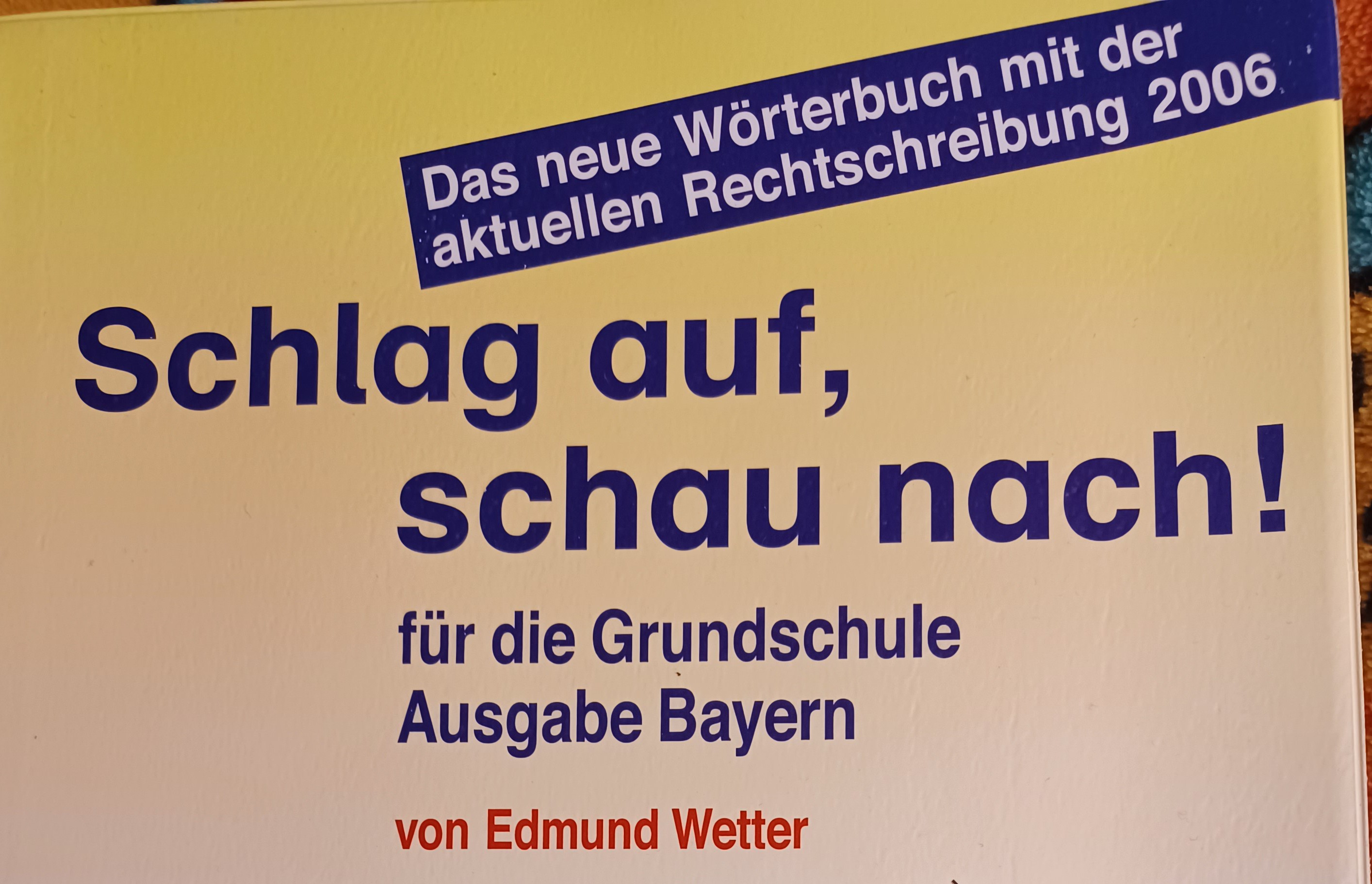I picked this up used today and it looked like it would be helpful to me, an English-speaking American who studied German many years ago and would like a refresher. But upon closer inspection it seems to be a Bavarian edition. How different from the "standard" German will it be, and will it confuse me more than helping? It is published by Mildenberger.
-
While Bavarian is quite different from standard German, I can't say about this particular book. But it is probably worth noting that Bavarian (ISO 659 language code bar) is a group of varieties that is spoken wider than Bavaria, while other German dialects are also spoken in Bavaria. As such bar does not have standardized orthography or perhaps even grammar. Which makes a book (with a std German title page) to be in bar quite unlikely.– frITCommented Apr 12 at 13:57
3 Answers
This book title is a result of German federalism. Education is a responsibility of the state level, not the federal level. As a result, every state has their own education system. This is what the subtitle Ausgabe für Bayern is referring to, implying that this edition of the book has been approved by Bavarian education authorities.
You can expect the language described in the book to be standard German.
This book is not about the Bavarian language or dialect. It is about German standard German that is the same in whole Germany (which is not fully identical to the German taught in Austria or Switzerland), but the book was published by authorities from the state Bavaria. (Germany has 16 states, like USA has 50 states).
Whether Bavarian is classified as a language or a dialect is controversial. But it is indeed very different. I wrote about the differences in the answer to another question. You can find this answer here: https://german.stackexchange.com/a/56353/1487
-
2
-
2You might want to point out that "Bavarian" is ambiguous: It's on the one hand the language, on the other hand "from/for Bavaria". Here it's the latter. You might also want to point out that German doesn't have this ambiguity, at least not in writing: The language group is called "bairisch" (and includes most of Austria), and anything from Bavaria is called "bayrisch".– tofroCommented Apr 12 at 15:41
-
@tofro: The same problem appears with »German« or »deutsch«. Does it mean the country Germany (deutschländisch) or does it mean the German language (deutschsprachig)? - About »bairisch« (the language or dialect): Not only is it spoken by 96% of Austria's German native speakers, also there are more speakers of Bavarian in Austria than in Bavaria (although there are about 13 million people living in Bavaria, but only 9 million in Austria). Commented Apr 14 at 5:04
All schoolbooks in Germany are like this. Even those for Latin or Math. That because edcuation is a matter of the 16 states and they all have a slightly different curriculum.
For your German dictionary, I expect it to feature additional dialect words that are common in Bavaria. It's a primary school book after all, so it can't list all the words in the entire German language sphere.
If you want examples on such words, there's an ongoing scientific project on it. For example, here's their results for carrots.
-
2I won't put it past the Bavarian government to emphasise words that promote what they see as Bavarian tradition. It might contain "Muttertag" and "Christkind", while a Berlin dictionary might have "Frauentag" and "Sandmännchen".– ccprogCommented Apr 12 at 14:01

